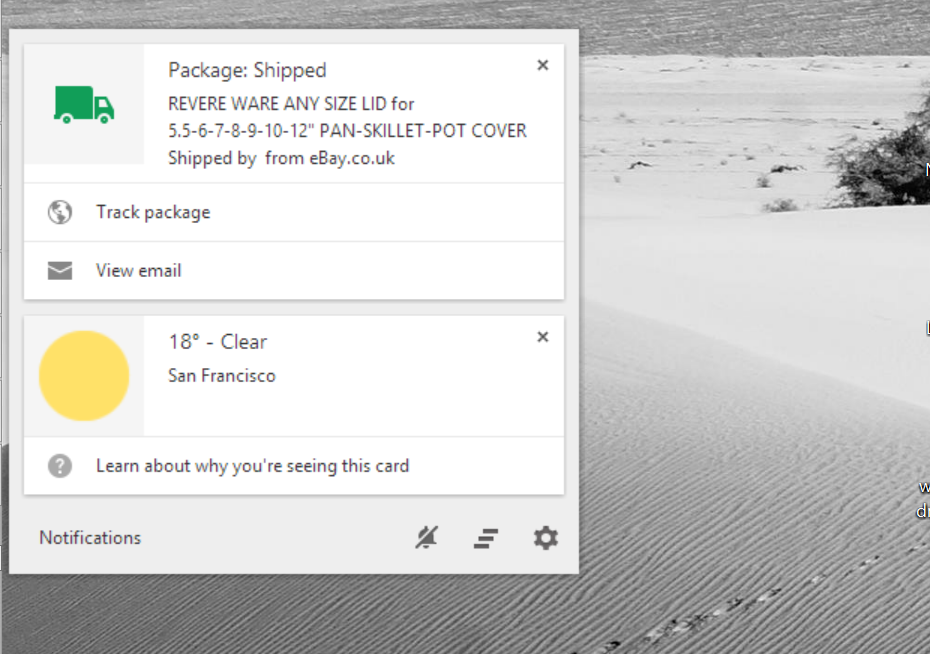Google Brings Its Smart Assistant to the Desktop
Google’s smart but personality-free assistant Google Now (see “Google’s Answer to Siri”) is embedded in the latest preview, or “Canary”, version of the company’s Chrome browser. That means that people who use Google Now on their smartphone and, via Chrome, on a Windows or Mac computer, will be informed via a desktop notification about things such as flight delays and sports scores. Google Now chooses those “cards” based on what Google knows from a person’s Gmail account, Web search history and the location of their mobile device.

When I installed Chrome Canary on my Windows-running laptop and signed in to my Google account, I saw two cards, one showing the local weather (based on my computer’s location) and another telling me that a package had shipped (gleaned from my email inbox). I didn’t see it happen, but it seems that when new cards appear in that list–for example, to say that your flight is delayed–a Windows notification will pop up to let you know.
Presumably, Google Now is slated to be added to the main Chrome browser, which is estimated by Statcounter to have a 46 percent share of the desktop browsers in use worldwide. Its appearance is a reminder that Google is willing to explore what it can do by drawing together its disparate sources of data on its users’ lives. Some of the data used by Google Now could conceivably also help the smart home devices made by the company’s recent acquisition Nest (see “Nest’s Future Is Like Apple and Google Collaborating”).
Perhaps increasing its availability will also make Google Now seem more essential. My experience with Google Now on my Android smartphone has been one of increasing indifference; I mostly don’t check the list of cards at all anymore, even though they are generally well-chosen. The app occasionally pushes a notification at me that it thinks is important, though, such as when it told me last week that a flight I was booked onto was delayed by several hours. In that case, I was glad Google Now was looking out for me, since I was unlikely to have checked my flight status manually or seen the email from the airline for some hours.
Keep Reading
Most Popular
Large language models can do jaw-dropping things. But nobody knows exactly why.
And that's a problem. Figuring it out is one of the biggest scientific puzzles of our time and a crucial step towards controlling more powerful future models.
How scientists traced a mysterious covid case back to six toilets
When wastewater surveillance turns into a hunt for a single infected individual, the ethics get tricky.
The problem with plug-in hybrids? Their drivers.
Plug-in hybrids are often sold as a transition to EVs, but new data from Europe shows we’re still underestimating the emissions they produce.
Google DeepMind’s new generative model makes Super Mario–like games from scratch
Genie learns how to control games by watching hours and hours of video. It could help train next-gen robots too.
Stay connected
Get the latest updates from
MIT Technology Review
Discover special offers, top stories, upcoming events, and more.